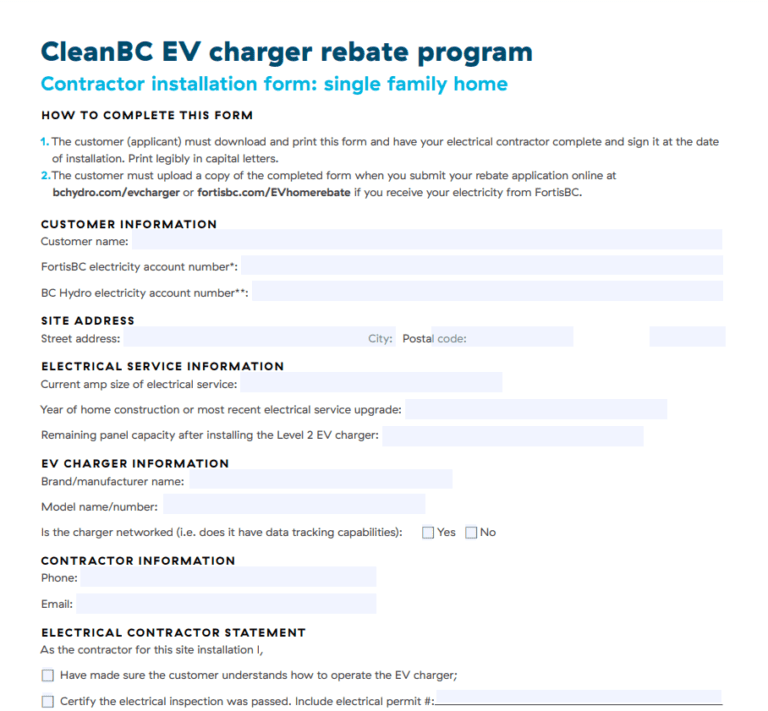Honda's Ontario EV Investment On Hold: Impact Of Market Slowdown

Table of Contents
The Current State of the Global EV Market
The global EV market is facing headwinds, experiencing a noticeable slowdown from the rapid growth seen in previous years. Several factors contribute to this deceleration. Rising interest rates have made EV financing more expensive, impacting consumer affordability. Simultaneously, persistent inflation has increased the cost of raw materials, driving up the price of EVs and further hindering demand. Supply chain disruptions, particularly concerning battery components, continue to plague the industry, limiting production capacity. Furthermore, increased competition within the EV sector is intensifying, forcing manufacturers to adjust their strategies.
- Decreased sales figures for EVs in key markets: Reports from major automotive markets indicate a decline in EV sales compared to optimistic projections.
- Increased prices of EVs and raw materials: The rising cost of lithium, cobalt, and other battery materials has directly impacted EV production costs, leading to higher sticker prices for consumers.
- Challenges in securing battery supplies: The global demand for EV batteries significantly outpaces current production capacity, leading to shortages and delays.
- Government subsidy changes impacting affordability: Changes in government incentives and subsidies in various countries have reduced the affordability of EVs for some consumers.
Honda's Specific Reasons for Delaying the Ontario Investment
While the global EV market slowdown is a significant factor, Honda's decision to delay its Ontario EV investment likely stems from a combination of broader market conditions and specific internal considerations. While Honda hasn't publicly detailed all the reasons, it’s likely a multifaceted issue. The company may be re-evaluating its production capacity in light of slower-than-anticipated demand. Cost overruns associated with the Ontario project, exacerbated by inflation and supply chain complexities, may also have played a role.
- Specific challenges faced by Honda in Ontario: Factors unique to the Ontario market, such as labor costs, infrastructure limitations, and regulatory hurdles, might have contributed to the decision.
- Potential cost overruns and financial considerations: The increased cost of materials and construction, alongside fluctuating exchange rates, could have exceeded initial budget projections.
- Re-evaluation of market demand and production capacity: Honda may be reassessing the actual market demand for its specific EV models, potentially impacting the projected return on investment for the Ontario facility.
- Focus on other EV projects globally: Honda might be prioritizing its EV investments in other regions with more favorable market conditions or existing infrastructure.
Impact on the Ontario Economy and Auto Industry
The delay of Honda's significant Ontario EV investment has considerable implications for the regional economy and the broader automotive sector. The potential loss of jobs, both directly at the Honda facility and indirectly through associated businesses, is a major concern. Local suppliers who were anticipating increased business from the new plant face uncertainty. The delay also raises questions about Ontario's long-term competitiveness in the burgeoning EV manufacturing landscape.
- Job losses or delays in job creation: The postponement could lead to job losses or significant delays in planned job creation, impacting the local workforce.
- Impact on local suppliers and businesses: Businesses that were expected to supply goods and services to the Honda plant may experience reduced revenues or even closure.
- Potential for government intervention or support: The Ontario government might consider providing financial incentives or support to mitigate the economic impact of the delay.
- Long-term effects on Ontario's position in the EV market: The delay could hinder Ontario's efforts to attract further EV investments and establish itself as a leader in the sector.
Alternative Strategies and Future Outlook for Honda's EV Plans
While the Ontario investment is on hold, Honda's commitment to electric vehicles remains. The company is likely exploring alternative strategies to achieve its global EV production goals. This could involve focusing on other existing or planned EV production facilities, accelerating investments in battery technology and research, and potentially forming strategic partnerships with other companies.
- Focus on other EV production facilities: Honda might prioritize its existing or planned EV production facilities in other regions to compensate for the delay in Ontario.
- Investment in battery technology and research: Investing in advanced battery technology can improve efficiency, reduce costs, and enhance the competitiveness of its EV models.
- Potential partnerships or collaborations: Collaborating with other automakers or battery technology companies could provide access to resources and expertise.
- Revised timelines and targets for EV production: Honda will likely adjust its timelines and production targets for its EV rollout in response to the current market conditions.
Conclusion: Honda's Ontario EV Investment: A Pause, Not a Stop?
The slowdown in the global EV market has forced Honda to reassess its strategy, leading to the temporary postponement of its significant Ontario EV investment. The decision highlights the challenges facing the entire EV industry, from supply chain disruptions to fluctuating market demand. While the pause is concerning for Ontario's economy and its automotive sector, it's crucial to monitor the situation closely and observe Honda's evolving plans. The future of Honda's Ontario EV investment remains uncertain, but it is likely a strategic pause, not a complete abandonment of the project. Keep up-to-date on Honda's Ontario EV investment and follow the latest news on Honda's electric vehicle strategy to understand the evolving landscape of the EV market. Learn more about the future of Honda's EV production by staying informed about industry developments.

Featured Posts
-
 1 Kiss Fms Vont Weekend Photos April 4th 6th 2025
May 16, 2025
1 Kiss Fms Vont Weekend Photos April 4th 6th 2025
May 16, 2025 -
 Pulaski Boil Water Order Extended To Saturday
May 16, 2025
Pulaski Boil Water Order Extended To Saturday
May 16, 2025 -
 Chicago Cubs Cody Poteet Spring Training Abs Challenge Victory
May 16, 2025
Chicago Cubs Cody Poteet Spring Training Abs Challenge Victory
May 16, 2025 -
 High Bids Mark Kid Cudi Personal Item Auction
May 16, 2025
High Bids Mark Kid Cudi Personal Item Auction
May 16, 2025 -
 Jimmy Butler And The Miami Heat Jersey Number Controversy Signals Deeper Issues
May 16, 2025
Jimmy Butler And The Miami Heat Jersey Number Controversy Signals Deeper Issues
May 16, 2025
